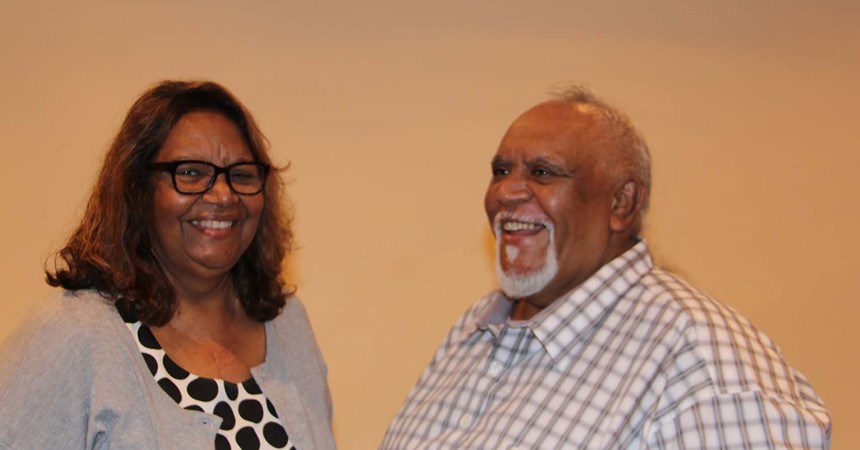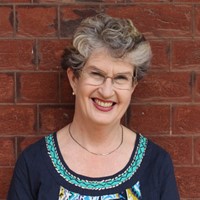Patricia welcomed guests to the annual Caritas Dinner, an opportunity to learn of the work of Caritas and to contribute to Project Compassion.
Louise Campbell, Education Officer (Aboriginal Education) at the Catholic Schools Office, led the acknowledgement of country and then handed the microphone to her brother Richard, this year’s speaker. Richard is a proud Gumbaynggirr man from the Nambucca and Macleay River country and a survivor of the Stolen Generation.
Richard shared the horror of his years at Kinchela Boys Home (KBH), Kempsey, where he lived after he and four siblings were stolen from their parents. “We used to move from town to town to keep ahead of the welfare but they caught up with us.”
He describes the treatment of boys as “a kind of crucifixion...you were stripped, covered with white powder, your clothes were burnt. I wasn't black, I was white, I wasn't Richard, I was number 28 and I had to speak English. I was speaking English! We worked hard on the dairy farm earning money that was supposed to go into a trust fund but we never saw the money. There was physical, mental and sexual abuse. I think I was a bad kid, I think I rebelled against it all. I never learned to associate with people, especially with white people, never learned to love, to respect people. All we knew was pain, that's what Kinchela was about. It wasn't much of a place to be. We had to create a family because they took us away from a loving family.”
As well as his stunning art, many pieces of which hang in diocesan offices, Richard has been sustained by the brotherhood of ‘Kinchela boys’. As Patricia Banister says, “The Kinchela Boys Home Aboriginal Corporation was established by the Kinchela survivors to reunite with one another and to begin healing from their horrific experiences. The Corporation’s “Unlocking the Past to free the future” program works to restore the social and emotional wellbeing of survivors and their families. They support each other by sharing their stories and so come to an understanding of how their experiences have impacted on themselves and their descendants. Caritas Australia supports the Kinchela Boys Home Aboriginal Corporation and is proud to walk alongside them in partnership on the journey to wellbeing.”
Richard says, "We created a country of KBH boys....they are men now. Only 20 of 60 or 70 left...many died early because of drugs or alcohol. We all should learn about it. We didn't have much of an education at KBH but now, I have a Diploma of Fine Arts from Deakin University.
“My sister Louise told me, ‘You've got a talent brother...’ and now, I’m painting all the time.
"We all need healing, whether indigenous or non-indigenous."
Richard is visiting several Australian dioceses during Lent, speaking to parish and school communities about some of his experiences and the work of Caritas Australia.
Please visit Caritas Australia.











